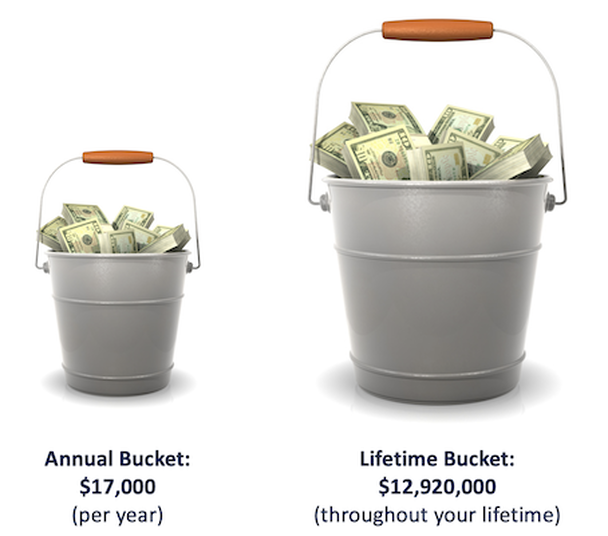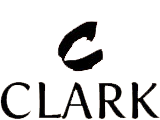|
THREE QUESTIONS TO ASK ABOUT YOUR HOME EQUITY LOAN  The Internal Revenue Service has advised taxpayers that interest on a home equity loan used to build an addition to an existing home is typically deductible, while interest on the same loan used to pay personal living expenses, such as credit card debts, is not. Click here to view the announcement. Here are three examples from the announcement with updated dates: ARE YOU USING THE FUNDS FOR HOME IMPROVEMENTS? In January 2023, a taxpayer takes out a $500,000 mortgage to purchase a main home with a fair market value of $800,000. In February 2023, the taxpayer takes out a $250,000 home equity loan to put an addition on the main home. Both loans are secured by the main home and the total does not exceed the cost of the home. Because the total amount of both loans does not exceed $750,000, all of the interest paid on the loans is deductible. However, if the taxpayer used the home equity loan proceeds for personal expenses, such as paying off student loans and credit cards, then the interest on the home equity loan would not be deductible. IS THE LOAN ATTACHED TO THE RIGHT PROPERTY? In January 2023, a taxpayer takes out a $500,000 mortgage to purchase a main home. The loan is secured by the main home. In February 2023, the taxpayer takes out a $250,000 loan to purchase a vacation home. The loan is secured by the vacation home. Because the total amount of both mortgages does not exceed $750,000, all of the interest paid on both mortgages is deductible. However, if the taxpayer took out a $250,000 home equity loan on the main home to purchase the vacation home, then the interest on the home equity loan would not be deductible. ARE YOUR TOTAL BALANCES LESS THAN $750,000? In January 2023, a taxpayer takes out a $500,000 mortgage to purchase a main home. The loan is secured by the main home. In February 2023, the taxpayer takes out a $500,000 loan to purchase a vacation home. The loan is secured by the vacation home. Because the total amount of both mortgages exceeds $750,000, not all of the interest paid on the mortgages is deductible. A percentage of the total interest paid is deductible.
Congratulations on your mortgage refinance or home purchase closing! Here is a general overview of some information that may be helpful to you and your CPA as you prepare your 2023 tax returns (the return you'll file by April 2024).
POINTS PAID ON A HOME PURCHASE IN 2023 Closing Disclosure Page 2, Section A - If the origination charges on Page 2, Section A of the Closing Disclosure include points paid to your mortgage company to reduce your interest rate, you can deduct those points in the year paid… even if they are paid by the seller. Other fees in this section (application, underwriting, processing, etc.) are NOT tax-deductible. Only bonafide points are deductible if they are expressed as a percentage of the loan amount and paid in exchange for a lower interest rate. POINTS PAID ON A MORTGAGE REFINANCE IN 2023 Closing Disclosure Page 2, Section A - If the origination charges on Page 2, Section A of the Closing Disclosure include points paid to your mortgage company in exchange for a lower interest rate, you can deduct those points in the following manner:
PROPERTY TAXES (ACTUAL AND PRO-RATED) Closing Disclosure Page 2, Section F - Property taxes itemized in this section are generally tax-deductible in the year they are paid. However, property tax escrows in section G are NOT tax-deductible until they are actually paid by your mortgage company to the municipality (city, state, county). Keep in mind there's a cap of $10,000 in total state and local taxes (SALT) that you can deduct on your federal income tax returns. PRE-PAID INTEREST Closing Disclosure Page 2, Section F - Mortgage interest is calculated in arrears. This means that your monthly mortgage payment actually covers the month that just passed. For example, your February payment covers the interest for the month of January, your January payment covers the interest for the month of December, and so on. Oftentimes, when you refinance a mortgage or buy a new home, you “skip” a month’s worth of mortgage payments. That is why you sometimes pay "pre-paid interest" or “daily interest charges” in Section F of the Closing Disclosure. These daily interest charges cover the interest for the current month. If your mortgage interest is deductible, then the pre-paid interest that you pay in this section is also deductible (this will be included in the 1098 statement that you receive from your mortgage company). PREVIOUS YEAR POINTS NOT YET DEDUCTED You may be able to deduct the remaining portion of the original points paid on an old mortgage if you refinanced that old mortgage in 2023. For example, assume you paid points on a refinance transaction 3 years ago. You probably were not able to deduct all the points you paid in the year they were paid. Instead, you had to spread that deduction out over the 30-year life of your mortgage. So, assume you’ve deducted 3/30ths of those points so far, and you refinanced your mortgage again in 2023. You can now deduct the remaining 27/30ths of those old points that you have not yet deducted. PRE-PAYMENT PENALTIES A pre-payment penalty paid on an old loan would be deductible on your 2023 tax returns as long as the new loan was taken out from a different lender than the old loan. OTHER CLOSING COSTS Closing costs not mentioned above are not tax-deductible. However, they are added to your “tax basis” for purpose of calculating your capital gain when you sell the property. In other words, you may be able to reduce your capital gains tax (if applicable) when you sell the property in the future because your home purchase closing costs get added to your cost basis. DISTINCTION BETWEEN A QUALIFIED RESIDENCE AND AN INVESTMENT PROPERTY Everything mentioned above pertains to a mortgage transaction involving a primary home or vacation home that is elected as a “qualified residence” for tax purposes. If your transaction involved an investment property, see IRS Publication 527. STANDARD DEDUCTION AMOUNTS FOR 2023 TAX RETURNS:
How does the gift tax work when using gift funds to buy a home?
$17,000 ANNUAL EXCLUSION The federal government gives each of us an allowance to gift anybody $17,000 per year without incurring any gift tax. This $17,000/year replenishes every year, and it’s $17,000 per person. So, theoretically, I could gift every person that I know $17,000 today, and then another $17,000 next year and the year after, and there would be NO gift tax. This $17,000 limit is up from $16,000 in 2022. $12,920,000 LIFETIME EXCLUSION What most people don’t realize, is that there’s a second allowance of $12.92mm! This is up from $12.06mm in 2022. In other words, let’s say that I want to give you $117,000. That’s $100,000 more than what I can give you out of my $17,000 annual bucket. That’s not a problem at all because I also have the $12,920,000 bucket. The $12.92mm bucket is called my “Lifetime Exclusion.” If I use any of it during my lifetime, I simply reduce my estate tax exclusion by that amount. So in our example, if I gift you $117,000, I would take $17,000 out of my annual bucket and $100,000 out of my lifetime bucket. My annual bucket replenishes each year. But my lifetime bucket does NOT replenish. In fact, I must reduce my lifetime bucket by $100,000, so now my lifetime exclusion is “only” $12.82mm instead of $12.92mm. Now, if my estate is less than $12.92mm, this would not be a problem at all, because my heirs would have no estate tax anyhow. However, if my estate is more than $12.92mm then my heirs would have to pay estate taxes on anything inherited above $12.92mm. In other words, the lifetime exclusion bucket is used for both gift and estate tax purposes. So every time I use it to not pay gift taxes, I’m also reducing my estate tax exclusion… that’s how and why the gift tax and the estate tax are related to one another. ADDITIONAL RULES:
Contrary to popular belief, mortgage interest is not always tax-deductible. Do you itemize your tax deductions? You cannot take the mortgage interest deduction if you are taking the standard deduction. In 2023, the standard deduction is $13,850 for single taxpayers, $20,800 for heads of household, and $27,700 for married taxpayers filing a joint return. (Please see a CPA for details.)Is your home a qualified residence? Mortgage interest is only deductible if the mortgage is attached to a "qualified residence". Taxpayers can generally deduct the mortgage interest on two qualified homes: one primary home and one vacation home. Is your mortgage classified as "acquisition indebtedness"? Your mortgage or home equity line of credit is considered "acquisition indebtedness" if it was used to buy, build, or improve a qualified residence. Generally, you can deduct the interest on mortgage balances up to $750,000 of Acquisition Indebtedness. Here are two examples:
$1MM ACQUISITION DEBT LIMIT ON PRE-2017 LOANS. Your acquisition debt limit is $1 million if you closed on your home loan prior to December 16, 2017, and the loan qualified as acquisition indebtedness at that time. You can keep that $1 million limit if you refinance that home loan as long as you do not increase the current balance on the loan. For example, if your current balance is $950,000, the new loan you’re refinancing into can’t be more than $950,000. This is also true when consolidating or refinancing a home equity loan or line of credit taken out prior to December 16, 2017, as long as you used that home equity loan to buy, build or improve a qualified residence. In that case, your combined aggregate total limit would be $1 million, whether you keep both loans separate, or whether you consolidate them into a single loan. DISTINCTION BETWEEN A QUALIFIED RESIDENCE AND AN INVESTMENT PROPERTY. Everything mentioned above pertains to a mortgage transaction involving a primary home or vacation home that is elected as a “qualified residence” for tax purposes. If your transaction involved an investment property, see IRS Publication 527. Number of the Week: $750,000 You can deduct the interest on mortgage balances up to $750,000. (If you follow the rules outlined above.) Source: Momentifi
YOUR COST OF BORROWING MAY BE LOWER THAN YOU THINK! 1. THE HIGHER THE INTEREST RATE, THE BIGGER THE TAX DEDUCTION.Homeowners who itemize tax deductions can deduct the interest on up to $750,000 of mortgage balances used to buy, build or improve a qualified home. In the past few years, not as many home buyers benefited from this because their total annual interest expense was lower than their standard deduction. However, interest rates and total annual interest expenses have doubled this year according to Freddie Mac's weekly survey of mortgage rates. For example, a $500,000 mortgage at a 6.5% interest rate has an annual interest expense of $32,500. This far exceeds the standard deduction. This also means that the homeowner in this example is more likely to itemize and benefit from the mortgage interest deduction. 2. HOW BIG IS THE TAX BENEFIT?Calculate for yourself!
|
Isaac Conde
305 West Moana Street Suite C Reno, NV 89509 775-553-8805 B.S. 0143661 ROI
All
|
305 West Moana Street
Suite C
Reno, NV 89509
775-553-8805
B.S. 0143661
Suite C
Reno, NV 89509
775-553-8805
B.S. 0143661






 RSS Feed
RSS Feed


